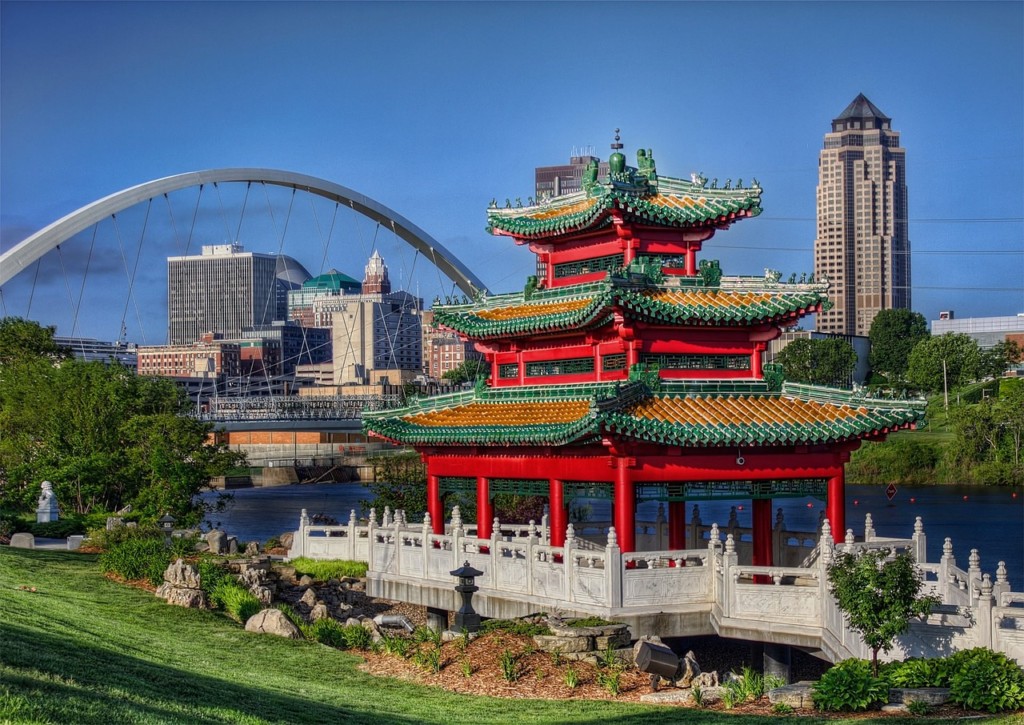Moving to Des Moines
With a low cost of living, a healthy economy fueled by sustainable growth industries, and family-friendly communities, the Des Moines metro area is a great place to live, work, and raise a family. It is consistently named among the best cities for a surprising variety of demographics: young professionals, middle class families, tech grads, retirees, and more. The city of Des Moines has around 200,000 residents, while nearly 600,000 people call the five-county metro area home.
Economic Opportunity
One of the best reasons to move to Des Moines is the robust, diverse economy. The median salary in the Des Moines metro area is $51,200, just about the national average, but the cost of living is six percentage points below the national average. Even more impressively, job growth is 2.9 percent. Traditionally, the Des Moines area has been home to some of the world’s largest insurance companies, which remain a strong presence in the region. The newest growth centers around tech giants like Facebook and Microsoft, as well as a community that encourages entrepreneurs, especially tech start-ups. The Iowa Economic Development Authority provides a variety of funds and incentives to encourage new and expanding businesses, and the state offers relatively low tax rates and business costs.
Strong Educational System
The school systems in Des Moines and its suburbs offer excellent educational opportunities, including an advanced placement program and innovative, global-focused International Baccalaureate program. The 2015 U.S. News and World Report list of best high schools in the country included 117 Iowa schools (16 silver medal schools and 101 bronze medal schools), including John F. Kennedy High in Cedar Rapids (No 1. on the Iowa list and 638 nationally), Ames High, Valley High in West Des Moines, and Waukee High.
Iowa also excels in higher educational opportunities, including small, well-ranked private colleges like Grinnell College, Cornell College, and Drake University, and large, diverse public educational institutions including the University of Iowa, University of Northern Iowa, Iowa State University, and the Des Moines Area Community College (DMACC) campuses.


Lifestyle and Entertainment
The Des Moines metro area is not only a great place to work; it’s also an impressively diverse place to play.
Events like the 80/35 Music Festival, held every summer, showcase chart-topping acts as well as local musicians. The internationally renowned Des Moines Arts Festival brings an impressive array of visual arts, live music, performing arts, interactive arts, and a film festival to the area. The annual non-competitive, week-long RAGBRAI bicycle event exemplifies Iowa’s love for the outdoors and state pride, with communities supporting the 8500 riders as they cross the state.
Downtown’s East Village has been rejuvenated into a trendy neighborhood of charming restaurants, music venues, boutiques, and bars, contributing to its popularity with millennials. The metro area also boasts a $40 million sculpture garden, a 16,000-seat arena for concerts and sports, 700 miles of connected trails and bikeways, and an amphitheater along the riverfront.
Close-Knit Suburban Communities
If you’re moving to the Des Moines metro area, Homes by Brill can help you figure out the perfect community for you, find land, and design a custom home especially for your family.
